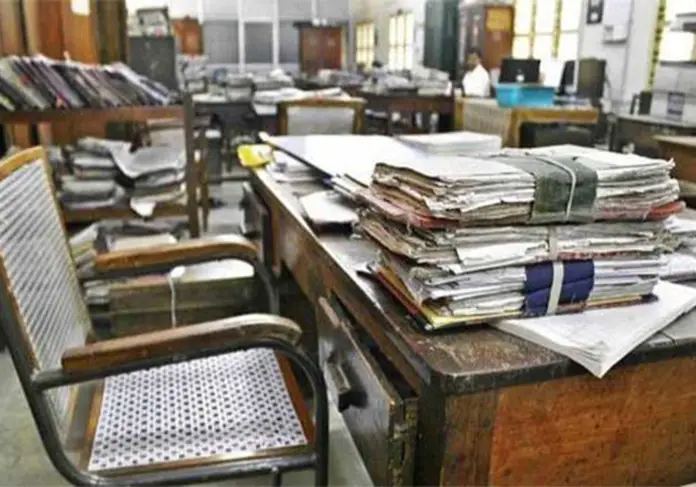The Finance Department has written to the Accountant General of Punjab (AGP) to grant special allowances for the judicial, administrative, CM Office, Governor House and Advocate General’s Office at the new revised rates. However, it has excluded the Punjab Ombudsman from the list.
The ombudsman’s office, without previously consulting the Finance Department and approval of the cabinet, had sanctioned heavy allowances for its officials and officers the other day. The Finance Department raised eyebrows on it, calling it crossing the limits of an autonomous body that purely depends on the public exchequer.
Alarmingly, when the country is on the verge of collapse and the government has issued an ordinance to sell the national assets, the government has astonishingly approved hefty allowances for the public sector machinery without developing any link to the performance.
When the exchange rate for the dollar is on the rise, inflation is recorded at 21pc or more, which is the highest so far, the government had time and again pledged to introduce and follow austerity measures; however, the circumstances tell a very different tale.
Following the footsteps of the administrative officers, some autonomous bodies have started approving the same to their employees, while the employees of other groups — including the Federal Board of Revenue and Accounts Group, Foreign Service, Postal, Pakistan Railways, and Information Group — have also demanded the government approve the same for them as well.
As per the notification of the Finance Department, the government conveyed its concurrence regarding the grant of special judicial allowance at the rate equal to 1.5 times of monthly basic pay to all judicial officers of the Punjab Judicial Service.
Moreover, it also notified a grant of special judicial allowance to the members of the Lahore High Court establishment at the rate of 1.5 times the basic pay. Likewise, it approved a grant of the Advocate General’s Office’s allowance at the rate of 30pc of the monthly basic pay to all employees of this office. On top of that, the FD has also notified the same for the Governor’s House and the chief minister’s office at 50pc of monthly payments to all the officers and officials.
An economist and public sector university professor said that all was not well in the country — both economically and politically. He said that the undue favours to officers across the board, who claim to serve the nation but, in reality, mint money for nothing, would further ravage the economy. He said those who work honestly, focus on performance, practice transparency and show better service delivery must be paid.
Otherwise, he said, there must be a cut in their allowances. He added that multiple causes like high loans, political instability or economic stagnation are the primary reasons for default. He said that the country survived the worst default risk during the pandemic, but the ongoing political cum economic crises may prove fatal in the days to come. He said that the ruling elite accumulated many foreign loans amid trade deficits.
Pointing out the current move of blessing even the deadwood in the poor-performing public sector agencies, the professor said it seemed a puzzling plan. He said, “The nightmarish political scenario and legal battles in courts may be avoided if we start heading in the right direction.” The short-sighted economists prioritising their political interests could never settle the foreign loan issue let alone settle the domestic inflation threat, he maintained. The economists, as he sees, have been trying to squeeze water from stones that was next to impossible.
Responding to a query on privatisation, he said, those who brought the country to this point should present their foreign assets for the purpose. He said there must be a debate on this grave issue of selling national assets for nothing. He said that, firstly, the government should present a comprehensive report on the already sold-out assets in front of the nation and only then do what it wanted. The purpose of privatisation was to reduce foreign loans, but they accumulated on the contrary.







